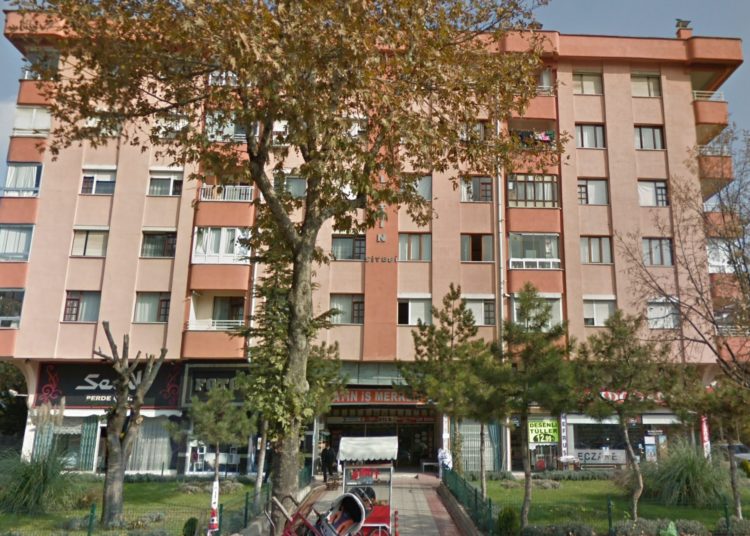Abdullah Bozkurt/Stockholm
An operative behind a Turkish company red-flagged by the UN for violating sanctions on Libya came out of the shadows after the European Union sanctioned the firm in September 2020.
According to trade registry records filed on December 29, 2020, Nuri Ali Karabilgin, a 48-year-old customs consultant in Turkey’s central province of Konya, listed himself as the general manager of brokerage firm Bahriye Nur Karabilgin Cem (BKNC) Gümrükleme Gıda Silah Hizmetleri Dış Ticaret Şirketi.
On paper, the company is still owned fully by Bahriye Nur Karabilgin, caretaker of the firm and a relative of Nuri Ali. However, with the changes Nuri Ali has now the full legal authority to represent the company in all kinds of business deals as general manager.
The company was first identified in a UN Panel of Experts report in December 2019 as a weapons supplier to Libyan factions. Misrata port authorities discovered a shipment of guns on January 7, 2019 during a search of a container offloaded from the MV Esperanza a week earlier. The 20,000 Ekol-Voltran blank firing pistols, convertible to real guns, were purchased by BKNC.
July 2017 trade registry filing by BKNC:
Although BKNC was established on April 28, 2017 in Konya as a customs brokerage consultancy and food and weapons trading firm, it quickly expanded its international reach, purchasing pistols and sending them to Libya. Its activity in trading highly restricted goods such as weapons suggests it was protected by the authorities in Turkey. Not much was revealed in trade filings, either, which means it could very well be a shell company established for specific operations that were apparently sanctioned by Turkish intelligence agency MIT.
The company’s capital was 500,000 Turkish lira (some $136,000 at the exchange rate in effect at the time) when it was first set up, according to records. Yet it somehow managed to purchase blank firing pistols from Istanbul-based Turkish manufacturer Voltran Av Silahlan Ve İnşaat Sanayi Ticaret Limited Şirketi (Voltran) for $160,000 (849,600 Turkish lira), meaning that it entered into a contract valued at far more than its paid-in capital.
What is more, BKNC billed the shipment for $114,000, way below its cost, to a company named Brothers Company for International Trade Toys Shop, Liberty Shipping Logistic (LLC), which is located in Tunisa, not Libya. In other words, the Turkish company sold the pistols at a loss of $45,000, which means that this was not about trade and making a profit. Neither the sending firm, BKNC, nor the stated recipient in Tunisia responded to inquiries by UN investigators.
Invoices, a bill of lading and shipment documentation show how BKNC falsified papers in shipping pistols to Libya:
Fearing that the UN investigation might expose the Turkish government’s clandestine and illegal arms shipments, the authorities decided to simply impose an administrative penalty on BKNC for a false customs declaration instead of launching a criminal investigation. The administrative penalty took some pressure off and gave some cover for the Turkish authorities, who would then claim that they acted upon the UN intelligence when in fact they had sandbagged the real investigation and protected BKNC.
The UN investigators concluded that the firm violated the arms embargo on Libya established in UN Security Council Resolution (UNSCR) 1970 (2011) and made a note that the Turkish government had provided only limited information about the firm and the shipment.

BKNC obtained a license to purchase and wholesale guns and ammunition that are subject to strict regulations in Turkey. Its office is located in Konya’s Selçuklu district, and there was only one person listed as the company officer, Bahriye Nur Karabilgin. After the EU sanctioned the company, a new filing was made with the chamber of commerce, and Nuri Ali Karabilgin came forward to take the helm.
The Facebook profile of Nuri Ali portrays a man with a far-right nationalist views, close to Turkey’s Nationalist Movement Party (MHP). It is not surprising to see that the Turkish intelligence agency often recruits people with an MHP background, believing that they are more loyalist and are risk-takers in clandestine operations run by MIT on foreign soil.
The Erdoğan government has maintained a keen interest in Libya, a country that has been embroiled in a civil war and divided since the 2011 Arab revolutions. Gen. Khalifa Haftar’s Libyan National Army (LNA) is supported by Saudi Arabia, the United Arab Emirates, Egypt, Russia and France, while the Government of National Accord (GNA) receives military support from Turkey and financial support from Qatar.
2020 trade registry filing by BKNC showing that Nuri Ali Karabilgin became general manager of the firm:
Turkish President Erdoğan and his family are also poised to make millions from the sale of military materiel to the Libyan faction it supports. The Turkish defense industry is by and large controlled by President Erdoğan, his family members and his business associates. It’s no wonder that the UN expert panel report took note of companies run by Erdoğan’s relatives or his close allies in arming Libyan factions.
The Turkish government even trafficked jihadists to Libya to help the GNA against Haftar’s forces, prompting an outcry. UN rapporteurs sent a joint letter in June 2020 to the Turkish government seeking further information about its role in the recruitment, financing, transportation and deployment of Syrian jihadist fighters to Libya.

The UN letter also revealed how the Turkish government used its paramilitary contractor SADAT for those operations. “Turkish authorities allegedly contracted private military and security companies to facilitate the selection as well as the preparation of official and contractual documentation for the fighters, apparently in coordination with the Turkish security services. One of the companies cited in this context was Sadat International Defence Consultancy [SADAT],” the letter said.
On September 1, 2020 a report by the US Defense Department’s inspector general revealed that SADAT has overseen supervision and payment to the mercenaries. SADAT, which is fully funded and supported by the Turkish government, is owned by retired Gen. Gen. Adnan Tanrıverdi, a former chief military aide to President Erdoğan. Nordic Monitor has published several reports on SADAT’s activities and goals in Turkey and abroad.












